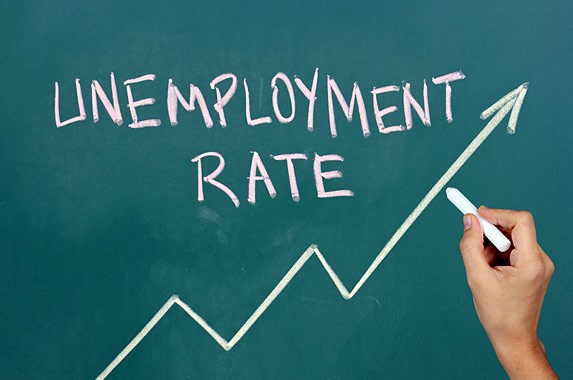On April 20, the state Department of Economic Opportunity released a new “dashboard” that tracks unemployment assistance. More than 1.6 million claims have been submitted, and only 40,000 claimants have received assistance. That’s 2.5%.
“The sheer volume is just outrageous, gigantic. I don’t know what other adjective I can throw at it,” said state Rep. Holly Raschein. “There’s no excuse, but nobody saw this coming. But I think we are beginning to see some relief. The light at the end of the tunnel is getting a little bit brighter.”
Raschein is referring to two key moves made by Gov. Ron DeSantis. First, he approved $119 million in emergency spending to bring the unemployment system up to date — $100 million of that went to call center contracts to handle the volume. (Plus, a call to state employees to handle jobless claims garnered 2,300 volunteers, including 500 from the Department of Revenue.) The other spending was on more sophisticated computer servers. According to Raschein’s office, that allows the department to handle 120,000 simultaneous connections instead of the previous 20,000 connections. Second, Gov. DeSantis put oversight of the unemployment system in the hands of Department of Management Services Secretary Jonathan Satter. (DEO’s Ken Lawson is still overseeing the rest of the department’s work such as FEMA reimbursements.)
Raschein said many Keys and South Florida constituents have called the office. At first, there was a lot of frustration about personal identification numbers and getting into the system. Then, residents wanted to know why they haven’t heard anything.
“Now, they’re saying $275 in weekly assistance is not enough,” the office spokesperson said.
That $275 number is key:
First, it’s the maximum amount Florida residents are entitled to by the State of Florida, plus the $600 a week that residents can receive from the federal government’s CARES Act.
Two, employees who have been furloughed — for example are working a four-day work week instead of a five-day work week — are likely to NOT get federal benefits if they are making more than $275 a week. That piece of information is being disseminated on the twice-weekly EOC calls in the Keys, but the Keys Weekly was unable to confirm it with any other government agency. It’s also unclear whether that applies to employees who WERE making more than $275 a week, or ARE making more than $275 a week.
“A lot of folks think unemployment benefits are the golden egg, that they will be made ‘whole.’ Unfortunately that is not the case. Governments and businesses who are considering furloughing employees need to make those decisions carefully and cautiously and consider the timeline,” said Raschein.
Ouch.
Many Keys residents have resorted to trying to file online in the middle of the night. Others gave up and filed the paper application. Monroe County Commissioner Michelle Coldiron printed out the paper unemployment forms and put them outside her office.
“The first two days, weekend days, all of the printed forms were gone. Now I keep the box stocked, but the demand seems to be leveling off,” Coldiron said.
And then there’s the “gig” workers, or the self-employed. Among those are musicians, freelance writers, Uber drivers, etc. While the federal government has unemployment benefits for “1099” applicants, the state government does not. And Floridians must access the federal benefits through the state system.
Ouch. Ouch.
Before coronavirus, Marathon’s Dez Smith worked as an independent contractor — as a DJ, and for a charter fishing company.
“Gov. DeSantis keeps saying the website is up to speed. No, it’s not. It keeps crashing,” Smith said. “I rely on tourism — I lost five weddings and events in April and May and I’m not fishing right now. I have my stimulus check, but rent is so high. I am trying not to use my credit card.”
Raschein’s office said the state government is trying to finalize a plan for 1099 workers. It’s also mulling whether the unemployment claim should be retroactive.
How long until Floridians begin receiving unemployment checks? In normal times, unemployed workers must wait a week before they can apply. Then the checks normally arrive in about three weeks. In corona times, and with the current backlog, it could be five or six weeks until Florida residents receive benefits.
Ouch. Ouch. Ouch.
Typically, Monroe County has the lowest unemployment figures in the entire state — about 2.3%. Even with new unemployment figures from March, that rate is only up to 2.8%, but the same lag with unemployment benefits is likely happening with reporting the number of unemployed. Before the coronavirus and virtual shutdown of the Keys, many businesses struggled to find enough employees and some are beginning to wonder if we should be tracking the number of workers leaving the Keys, like Dawn Melody Harris.
Before the shutdown, she was the breakfast cook at Rainbow Bend Resort in the Middle Keys. She survived Irma, and then breast cancer.
“I still can’t get into the system. I don’t know if I should reapply. I don’t even know if I’ve been denied,” said the single mother.
Harris said she ran out of money and left the Keys with her son to live with her dad. Will she be coming back to the Keys when this is all over?
“I don’t know …”
At the latest BOCC meeting, Director of Legislative Affairs Lisa Tennyson spoke about the $600 federal unemployment benefit many are waiting on. She said, “Normally, Florida has very stingy unemployment benefits in terms of max weekly pay and amount of weeks you can receive those payments.” The CARES act is meant to expand these unemployment benefits in each state by two components: an additional $600 a week on top of whatever a claimant might qualify for from the regular state unemployment benefit, good for four months through July 31, and expanding who qualifies for unemployment benefits (including self-employed and part-time workers).
Olivia Hammon, a self-employed wedding and events planner in the Upper Keys, has spent the last few weeks navigating through the unemployment system, and more specifically, CARES Act promises and how the state’s mishandling it.
She’s been asking the state about the $600 per week for each person on unemployment under the CARES Act, especially for the self-employed like her who are not working and have children to feed — not to mention no childcare options with students home for the rest of the school year.
“Earning $275 a week won’t even scrape the bottom of the bucket for putting food on the table and keeping a roof over heads in the Keys, especially if someone has children” she said.
At the BOCC meeting, Mayor Heather Carruthers asked if the benefits will be retroactive once the system is fixed. “We believe it will,” Tennyson answered.
According to Raschein’s office, the federal disbursement of CARES Act money is operational, but the federal benefit has been sent to only 24,000 Florida residents so far of the 121,000 checks that have been deposited or mailed.
In response, DEO stated that they’re working diligently with the federal government to expand eligibility for Floridians. There’s also concern that the $600-a-week federal benefit will run out before Florida gets its unemployment benefit system straightened out. That is certainly what happened with the Payroll Protection Program to help small (and large!) businesses keep employees on the payroll.
“They are not yet giving benefits to independent contractors, and now it appears no one will be receiving the extra funds anytime soon,” Raschein said. “So, how will our Keys community full of self-employed and hospitality workers survive with our cost of living? And what happens when the package funds out of money and Florida is left hanging?
For more information, visit www.FloridaJobs.org/RAApplication.
— Tiffany Duong and Jim McCarthy contributed to this report.
Employees who have been furloughed — for example are working a four-day work week instead of a five-day work week — are likely to NOT get federal benefits if they are making more than $275 a week.























